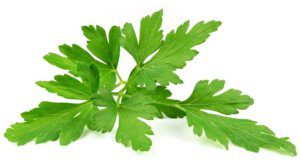10 Proven Working Ways To Naturally Control Your Appetite.
Do you have a hard time controlling your appetite? Do you reach for a healthy meal and assume it will fill you up, only to be hungry again an hour later? We have all been there but you are not alone. With today’s increasing portion sizes and easy access to processed foods, is it any wonder that almost half the adults in 2018 were obese? Why is it so difficult to avoid overeating?
Mental Disorders
It’s no secret that mental disorders have connections to various eating disorders. Depression is one of the mental disorders that is linked to overeating.
Those who suffer from depression tend to eat without ever feeling satisfied or eat until they’re relieved emotionally, which can be significantly more than the recommended portions. Overeating can make depression worse as those who suffer from it will feel disgusted with themselves in the end.
Dieting Gone Wrong
Another reason people overeat is that they attempt an unhealthy diet to try to lose weight. Many will try cutting out meals completely, and others will reduce the number of calories in their diet in a very unhealthy way. They might find short-term success with crash dieting but their body ends up craving so much that they end up binge eating when their crash diet stalls.
Genetics
Genetics is a factor, albeit a rare one, that can cause overeating. Certain eating disorders can be passed down through genes and binge eating is one of them. That’s because their brains are unable to process the control center behind their appetite or their mood. Mood, as stated before, can affect overeating as well.
With all these different causes of overeating, it can be tempting to take a pharmaceutical approach to treatment. However, there are some ways to naturally control your appetite.
10. Supplement Fiber Into Your Diet
 Fiber is a natural appetite suppressant. You can find fiber in many vegetables, oats, fruits such as berries or apples, beans, and whole grains.
Fiber is a natural appetite suppressant. You can find fiber in many vegetables, oats, fruits such as berries or apples, beans, and whole grains.
Consuming fiber helps regulate ghrelin, a hormone in your body, to control hunger by reducing it. Enough fiber consumption a day can help naturally reduce your calorie intake.
9. Calming Your Stress Will Naturally Control Your Appetite.
When you’re stressed, your body becomes resistant to the hormone leptin. Leptin is the hormone that helps reduce your cravings. It is one of the major hormones that help reduce your body weight. Unfortunately, many obese people have built up too much of a resistance to leptin that it has become a never-ending cycle of overeating. Fortunately, reducing your stress may help your body regulate leptin properly.
8. Reducing Your Alcohol Intake.
 It’s no secret that alcohol affects our inhibitions. We end up making unhealthy choices, not just with our food, but with other decisions as well that could land us in trouble.
It’s no secret that alcohol affects our inhibitions. We end up making unhealthy choices, not just with our food, but with other decisions as well that could land us in trouble.
Those who regularly consume alcohol normally consume large meals alongside it due to alcohol limiting the leptin hormone.
7. Support System.
A good support system can help you in any aspect of life. The same can be said about overeating. If you eat with people who can help you control your portion sizes or help you emotionally as you’re eating, you’ll be less inclined to overeat.
6. Plan Your Meals Ahead Of Time.
 One big reason why many people overeat is that they eat on impulse. Many of their food choices are made last-minute. They’ll often be too tired after work and just want something quick from a fast-food chain who offers more food for less money.
One big reason why many people overeat is that they eat on impulse. Many of their food choices are made last-minute. They’ll often be too tired after work and just want something quick from a fast-food chain who offers more food for less money.
However, that food is often calorie-dense with very little nutrition. Planning your meals, and even preparing them ahead of time, can keep you from overeating.
5. Keeping Track Of Your Diet Can Naturally Control Your Appetite.
People who track what they’re eating are less likely to eat more because they can visually see what’s causing their issue on paper. A food journal can help you make smart food choices daily.
4. Eating Smaller More Frequently.
 While eating more often sounds like a far-fetched idea but it can help you control your appetite and keep you from overeating. The idea is to consume smaller portions.
While eating more often sounds like a far-fetched idea but it can help you control your appetite and keep you from overeating. The idea is to consume smaller portions.

However, that doesn’t mean eat whatever you want every hour of the day. That means each small meal you consume must be nutrient-dense so your stomach relays to your brain that you’re full. This also helps train your metabolism to process food and waste through your body faster to aid in weight loss.
3. Clean Out Your Pantry.
One of the easiest ways to limit how much food you’re consuming is by limiting the food you have access to. If you control your access to food and control what food you have available, then you’ll be less inclined to reach for unhealthy snacks or processed frozen food. Make sure if there’s anything that isn’t expired to donate it to charity if any are available.
2. Mindful Eating Techniques.
 When you’re sitting down with a plate of food, then pay close attention to how you’re eating. If you eat too quickly, then you tend to overeat. When you eat too quickly you unconsciously overeat because you’re ignoring the signals of your body.
When you’re sitting down with a plate of food, then pay close attention to how you’re eating. If you eat too quickly, then you tend to overeat. When you eat too quickly you unconsciously overeat because you’re ignoring the signals of your body.
You have to eat a little more slowly and take smaller bites. Make sure you’re not eating your food whole and chew through each bite in its entirety. Focus on every bite and you’ll find yourself naturally stopping yourself from overeating.
1. Drinking Plenty Of Water Can Help You Naturally Control Your Appetite.
It should already be a no-brainer to stay hydrated. Unfortunately, many people consume more sugary drinks and alcohol than they do water. Consuming plenty of water right before a meal can help your stomach feel full. When your stomach feels full you’re less likely to overeat because your brain believes it has had enough.
Naturally controlling your appetite is a tough habit to start. Following these tips will help you start a new and healthy routine.
References:
- https://stacks.cdc.gov/view/cdc/85451
- https://adaa.org/understanding-anxiety/related-illnesses/eating-disorders
- https://www.ncbi.nlm.nih.gov/pmc/articles/PMC2780863/
- https://www.ncbi.nlm.nih.gov/pmc/articles/PMC4359909/
- https://www.ncbi.nlm.nih.gov/pmc/articles/PMC3409346/
- https://www.health.harvard.edu/blog/why-keep-a-food-diary-2019013115855
- https://www.ncbi.nlm.nih.gov/pmc/articles/PMC3813573/


